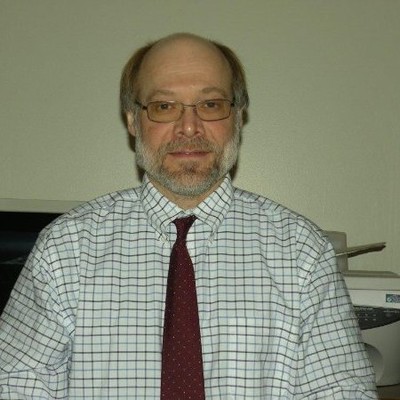
Timothy M. Smith
- Courses0
- Reviews0
- School: University of Minnesota
- Campus: Twin Cities
- Department: Bioproducts/Biosystems
- Email address: Join to see
- Phone: Join to see
-
Location:
100 Church St. S.E.
Minneapolis, MN - 55455 - Dates at University of Minnesota: -
- Office Hours: Join to see
Biography
University of Minnesota Twin Cities - Bioproducts/Biosystems
Resume
2009
NorthStar Initiative for Sustainable Enterprise\nInstitute on the Environment
University of Minnesota
Founding Director
Institute on the Environment
University of Minnesota
NorthStar Initiative for Sustainable Development
1999
University of Minnesota
INCAE Business School
Environmental Sciences
Policy & Management\nDept. of Bioproducts & Biosystems Engineering
University of Minnesota
1998
GTE Wireless
GTE Wireless
1994
Doctor of Philosophy (Ph.D.)
M.B.A.
Forest Resources Management
Marketing
Management Science
Penn State University
1991
B.S.
Finance
1987
West potomac
Climate Change
Environmental Policy
Sustainability
Life Cycle Assessment
Data Analysis
Energy Efficiency
Sustainable Development
Environmental Awareness
Environmental Science
Management
Policy
Renewable Energy
Energy Policy
Program Management
Environmental Management Systems
Research
Revisiting renewable portfolio standard effectiveness: policy design and outcome specification matter
This study investigates patterns of RPS policy design and analyzes the effects on policy outcomes measured at the level of utility compliance. \n\nWinner of the 2013 Lasswell Prize for the Policy Science Article that \"contributes most to the theory and practice of the policy sciences.\"
Revisiting renewable portfolio standard effectiveness: policy design and outcome specification matter
Carbon emissions and management scenarios for consumer-owned utilities
We develop an approach that utilizes streamlined LCA methods
together with linear programming
to determine optimal portfolios of product impact-reduction opportunities under budget constraints. Results suggest that extending EPP decisions and resources to the portfolio level
recently made feasible through the methods illustrated herein
can provide substantially greater CO2e and water-depletion reductions per dollar spend than a product-by-product approach
creating opportunities for procurement organizations to participate in firm-wide environmental impact reduction targets.
Optimizing Eco-Efficiency Across the Procurement Portfolio
Developing a blueprint for an energy efficiency asset class.
Increasingly
organizations are working to reduce the environmental footprint of their supply chains. The use of environmentally preferable purchasing criteria is one strategy organizations use to address this goal. However
evaluating the environmental performance of these criteria (e.g. recycled content
biodegradable
renewable
etc.) has remained elusive. Life cycle assessment (LCA) can measure the impact reduction potential of sourcing strategies
however
full process-based LCAs are time consuming and costly across multiple criteria of thousands of products and inputs purchased in an organizational setting. A streamlined “hotspot” methodology is presented using a combination of environmentally extended input-output (EEIO) approaches
extant literature and parameterized process-based LCA. Case studies of wheat cereal and orange juice are developed to test the cost-benefit of this approach and assess sourcing criteria scenarios. Results suggest that a substantial proportion of total impact can be assessed with significant reductions in process data inputs
allowing for a more robust comparative assessment of sourcing criteria – within and across hotspots.
Hotspot Scenario Analysis: comparative streamlined LCA approaches for Green supply chain and procurement decision-making
Four configurations of a novel solar-heated biomass gasification facility and one configuration of conventional biomass gasification are analyzed through financial and policy scenarios. The purpose of this study is to determine the potential financial position for varying configurations of a novel technology
as compared to the current state-of-the-art gasification technology. Through the use of project finance and policy scenario development
we assess the baseline breakeven syngas price (normalized against natural gas prices and based upon annual feedstock consumption)
the sensitivity of major cost components for the novel facilities
and the implications of policy levers on the economic feasibility of the solar facilities. Findings show that certain solar configurations may compete with conventional facilities on a straightforward economic basis. However
with renewable energy policy levers in place the solar technologies become increasingly attractive options.
Economic assessment of solar and conventional biomass gasification technologies: Financial and policy implications under feedstock and product gas price uncertainty
Comparative Life Cycle Analysis of GHG Emissions for Bio-PET Bottles
Determine firm-specific influence on county corn production for the beef
pork
poultry
and ethanol industries
which collectively account for approximately 70% of corn demand. Spatially-explicit sourcing model will be used to determine how these companies can influence farm-level best practice implementation.
Kimberly Mullins
NorthWest Advanced Renewables Alliance
Use LCA to assess the co-products of the wood-to-jet fuel biorefinery and determine how these may affect the bio-fuel's ability to meet the Renewable Fuels Standard. Results will be used as inputs to an optimization model that will optimize for both profit and environment.
Tim
Smith
INCAE Business School
NorthStar Initiative for Sustainable Development
Possible Matching Profiles
The following profiles may or may not be the same professor:
- Timothy Smith
HACC - English - Timothy Smith
York College of Pennsylvania - English - Timothy Smith
University of Dayton - Chemistry - Timothy Smith
Lake Michigan College - Philosophy - Timothy Smith
College of the Holy Cross - Theater
Possible Matching Profiles
The following profiles may or may not be the same professor:
- Timothy M Smith (30% Match)
Lecturer
California State University - California State University - Timothy Smith (00% Match)
Instructor
Coast Community College District - Coast Community College District - Timothy Smith (00% Match)
Instructor
Rancho Santiago Community College District - Rancho Santiago Community College District - Timothy M Smith (30% Match)
Adjunct Faculty
Vincennes University - Vincennes University - Timothy Smith (00% Match)
Associate Professor
Kentucky Community Technical College System - Public Universities